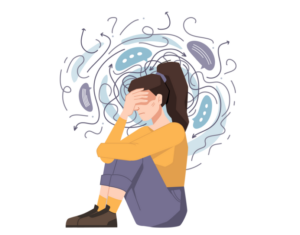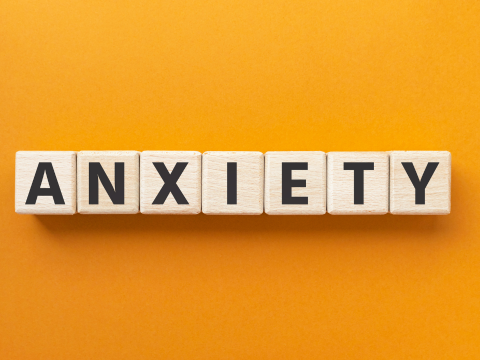Anxiety can be overwhelming, affecting our mental and emotional well-being. However, there are effective strategies available to help reduce anxiety and restore a sense of calm. In this article, we explore five evidence-based ways to reduce anxiety and promote a greater sense of inner peace. Discover these powerful techniques and incorporate them into your life to experience relief from anxiety’s grip.

Practice Deep Breathing and Relaxation Techniques: Deep breathing exercises are a powerful tool to reduce anxiety in the moment. By focusing on slow, deep breaths, you activate the body’s relaxation response and bring your attention away from anxious thoughts. Combine deep breathing with progressive muscle relaxation or guided imagery techniques to deepen relaxation and release tension. Regular practice can help you cultivate a calm and centered state of mind.
Embrace Mindfulness Meditation: Mindfulness meditation involves intentionally focusing on the present moment without judgment. By observing your thoughts and sensations without getting caught up in them, you create space to respond to anxiety in a more balanced way. Regular mindfulness practice can help reduce anxiety by increasing self-awareness, promoting acceptance, and building resilience in the face of stressors.
Engage in Regular Exercise: Physical activity is not only beneficial for your physical health but also for your mental well-being. Regular exercise helps release endorphins, the body’s natural mood-enhancing chemicals, reducing anxiety and improving overall mood. Choose activities you enjoy, such as walking, jogging, yoga, or dancing, and aim for at least 30 minutes of moderate exercise most days of the week.
Practice Effective Stress Management: Stress often exacerbates anxiety, so implementing effective stress management techniques can be invaluable. Identify your stressors and find healthy ways to cope with them. This may include setting realistic goals, prioritizing self-care, practicing time management, and seeking support from loved ones. Engage in activities that promote relaxation, such as taking breaks, enjoying hobbies, listening to music, or spending time in nature.
Seek Professional Support and Therapy: If anxiety significantly impacts your daily life, seeking professional help is crucial. A mental health professional can provide guidance, support, and evidence-based treatments tailored to your needs. Cognitive-behavioral therapy (CBT) is particularly effective for managing anxiety by helping you identify and challenge negative thought patterns, develop coping skills, and gradually face anxiety-provoking situations.
Conclusion: Reducing anxiety is a journey that requires consistent effort and a holistic approach. By incorporating these five best ways to reduce anxiety – practicing deep breathing and relaxation techniques, embracing mindfulness meditation, engaging in regular exercise, practicing effective stress management, and seeking professional support – you can take proactive steps toward reclaiming your inner peace and well-being. Remember, each person’s anxiety journey is unique, so explore and adopt the strategies that resonate with you and make them a regular part of your life.

